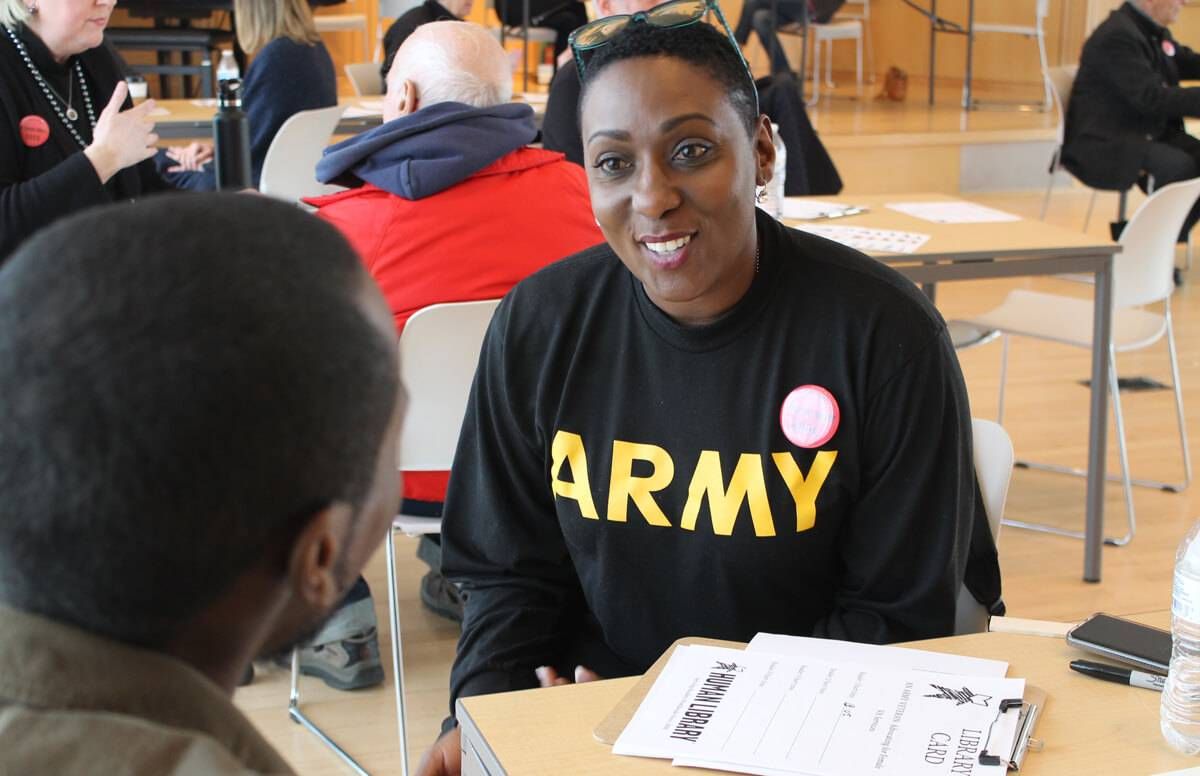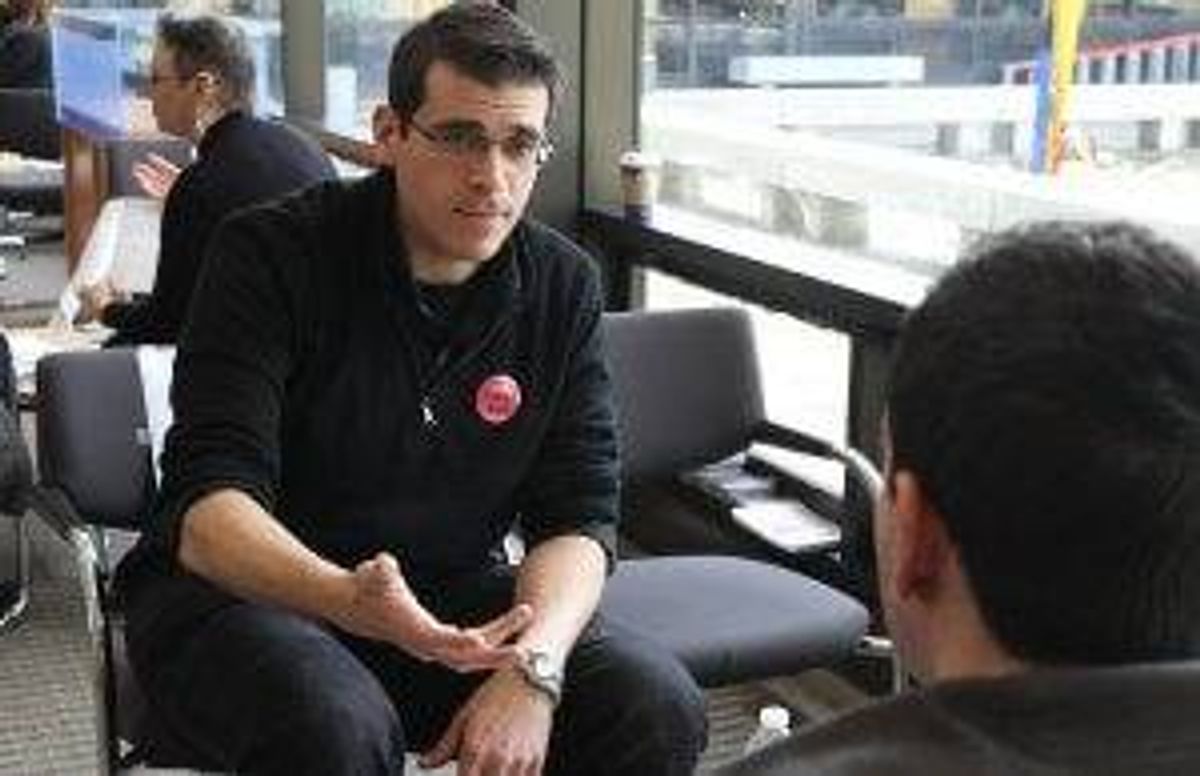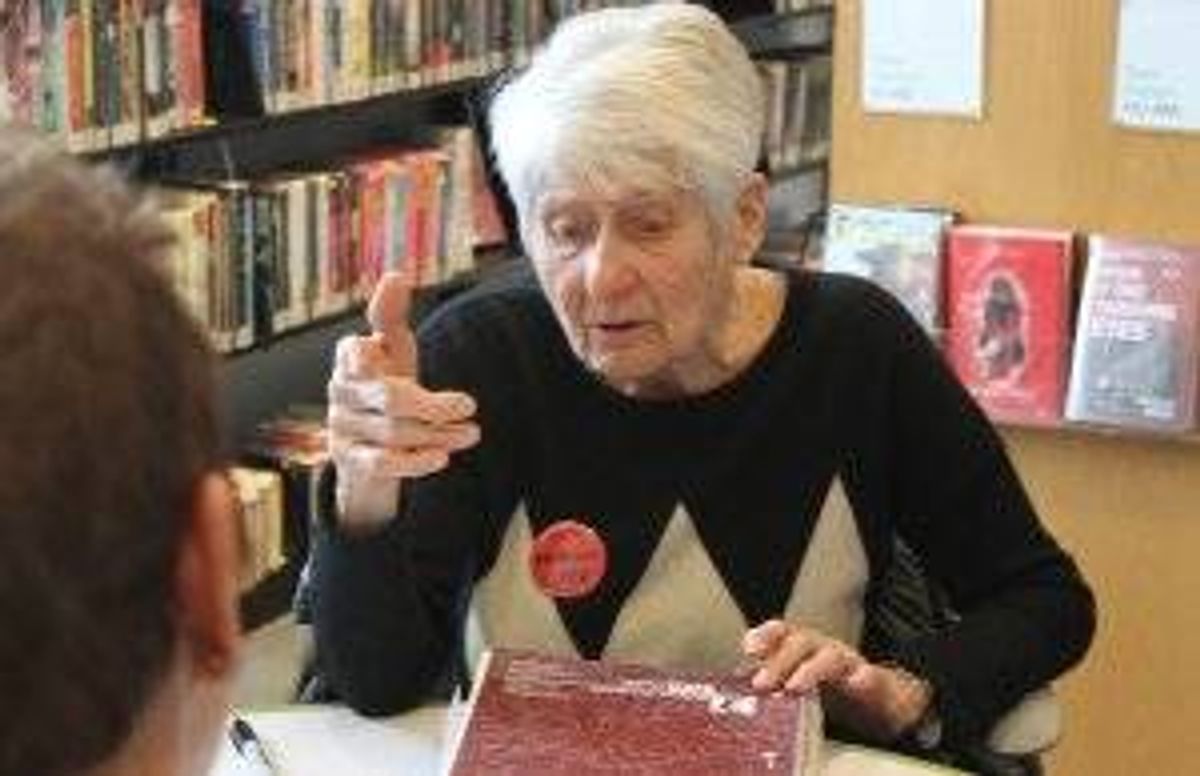Courageous Conversations at the Human Library
It's National Library Week: Learn how human 'books' can address stereotypes
You can’t judge a book by its cover, but most people do exactly that with humans.

“We so frequently do judge people by their appearances or their identity or their religion or gender — you name it,” says librarian Susan Lauricella of the Wilton Library in Wilton, Conn. “There are all these assumptions instantly made whether you want to acknowledge it or not.”
There are also sincere questions you might want to ask but can’t: What’s it like to face that challenge? How do you live with that disease? Why did you choose that path?
“You couldn’t walk up to a stranger on the street, someone who was different than you, and just ask them something, but here you can,” says Lauricella.
By “here,” she means the Human Library™, an event that lets library patrons meet one-on-one with “human books” and engage in meaningful dialogue with those people about their personal stories. The goal is to get beyond assumptions and stereotypes, to “unjudge someone,” as the Human Library Organization’s tagline promises.
A Successful Formula
The Wilton Library held its first Human Library event in March 2018 and discovered just how powerful the experience can be. Across the four-hour event, more than 250 "readers" had the chance to check out 22 "books," whose life-story topics included ageism and anorexia, racism and sexual assault, being Christian and being Pagan, defeating addiction and living with Alzheimer’s disease.

The human books were stationary, with the readers “checking them out” at the registration table and then going to where those people were sitting; each "book" participated in approximately 10 conversations. A second event in March 2019 featured 26 human books, although attendance dipped a bit.
The 2018 event at the Wilton Library was the first held at a public library in Connecticut, but far from the first Human Library anywhere. That occurred in 2000 in Copenhagen, Denmark, where a youth organization called Stop the Violence staged a four-day event during the popular Roskilde Festival.
Organizers knew they’d found a successful formula from the start. As the Human Library Organization’s website describes, “Before the first reader could take out a book, the talks were already going on extensively and the feeling of something very special was in the air. The policeman sitting there speaking with the graffiti writer. The politician in discussions with the youth activist and the football fan in a deep chat with the feminist. It was a win-win situation and has been ever since.”
In the intervening decades, the Human Library Organization has spread to more than 80 countries. Tech company eBay has had the group hold events for its employees. Volunteers in Denmark and Germany have created book “depots,” groups of human books and librarians who stand ready to set up events in local communities. A smartphone app is being developed to help people discover their own prejudices. As Human Library founder Ronni Abergel has noted, “All people navigate diversity through the use of certain prejudices. They are simply part of our instincts, and the app will help make you see that clearly.”
Opening Their Lives to Strangers
But the Human Library’s strength still lies in the people willing to open their lives to total strangers. When the Wilton Library began planning its event, Lauricella and her colleagues reached out to family, friends and others who were already sharing their stories in the community. They met with each "book" twice to discuss the Human Library format and to help hone the 10-minute presentations. Last year’s format also included 10 minutes each of questions and answers, but Lauricella says the Human Library Organization now calls for at least 30 minutes of conversation.
Some "books" needed even more time to prepare, including the woman who’d dealt with clinical depression and couldn’t tell her story without breaking down. “We actually met with her a number of times and kept practicing,” Lauricella recalls. “She came and did it, and I think it was very therapeutic for her.”

One of the first human books Lauricella recruited last year was Judy Higby, a two-time president of the library’s board of trustees. She shared about her adult son’s lifelong struggle with rapid-cycling bipolar disorder and what it’s like to parent such a child.
“It takes profound trust that this person is not just imagining things, but it sure is confusing,” Higby says. “And that’s what I communicate to people: You’ve got every right in the world to be scared.”
Higby’s "readers" included several who needed to hear her story, including the ex-wife and daughter of a man they suspected suffers from bipolar disease and a middle-school teacher who’d been noticing problems in one of her students.
“Another was a man who came just to talk to me about the insecurities a college-age daughter is going through,” Higby says. “He doesn’t think it’s mental illness, but wondered what suggestions did I have as a mother.”
A Veteran Tells Her Story
Not all patrons had such specific needs. “I had several friends who just went around to hear the stories that the books were willing to share with them, just for their own education,” Higby says.
This year, new human book Juliet Taylor, who advocates for female military veterans, encountered a similar mix of readers. Among those who "checked out" the retired U.S. Army staff sergeant were a Vietnam veteran, a man whose company has struggled to retain the veterans it hired and a woman with no military connections whatsoever.
“She’ll go to parades and wave the flag, and if she sees a homeless veteran on the street she’ll try to stop and give a dollar, but she’d never had a conversation,” Taylor says.
Many of Taylor’s readers asked how they could help veterans. One even offered to help Taylor herself. “He has agreed to take my résumé and bring it down to where a civilian employee can understand it,” she says.
Taylor stayed busy throughout the four-hour event and found the experience amazing. Next year, she plans to return with her teenage daughter, who can share the perspective of growing up with a parent in the military.
“I think it would be interesting for people to hear that story,” Taylor says. “While my daughter has support from me and my mom — who was my rock and still is — a lot of children went a whole different direction because they didn’t have support.”
‘Incredibly Powerful’
“It’s a wonderful format and a fabulous structure, and I’m glad it’s finally come to the United States after a couple of decades in Europe,” Higby says. “It was incredibly powerful for me as a 'book.'”
Lauricella agrees. “I’ve been here 17-plus years, and I feel it was the most meaningful and powerful thing I’ve done since being here,” she says.
Visit the Human Library Facebook page to find events near you or to learn how to bring the Human Library to your community.

